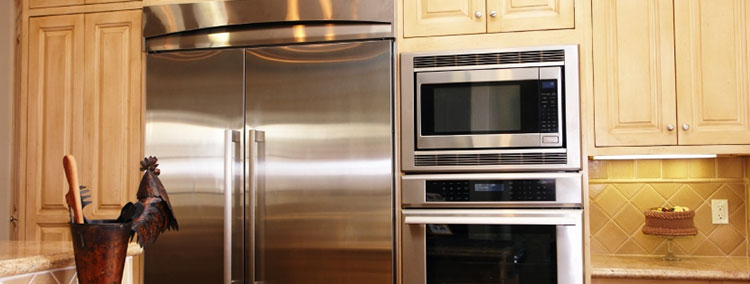
Refrigerators work hard to keep the food cold and safe. Unfortunately, many kitchen owners don’t do much to love them back. According to appliance repair professionals, this results in the appliances breaking down more often.
They also consume a lot of energy. Do you want your refrigerator to run efficiently? Put these tips into action:
Keep it away from hot appliances
It’s common to have ovens, dishwashers, and other heat-producing appliances at home. The heat produced by these appliances makes the refrigerator work harder to maintain its cool temperature. As you might guess, this leads to a high electricity bill.
To prevent the appliance from working too hard, put the fridge as far away from the heat-producing devices as much as possible. If you have a large kitchen, put the refrigerator at a designated area.
Fill it up
Some clueless homeowners have the notion that the refrigerator functions better with fewer items, but this isn’t the case. You should note that the more stuff the fridge has, the more efficient it runs.
If you don’t have a lot of food to store in the fridge, fill pitchers with tap water and place them in the excess spaces in the refrigerator.
Replace the rubber seal on the door
Also known as a gasket, the rubber seal protects the fridge from unwanted warm air from getting into the refrigerator. The opening and closing of the door wear out the gaskets, and it’s only a matter of time before you have to replace them.
When the rubber seal wears out completely, warm air from the outside enters the fridge, which triggers it to work even harder, which translates to high energy bills at the end of the month.
To keep warm air from entering the fridge, replace the worn-out rubber seals.
Clean it up
In addition to cleaning the insides of the appliance, you also should pay attention to the outside and especially the back of the unit. Pull the refrigerator away from the wall and get rid of dirt and grime from the coils.
If you have a modern appliance, the coils will be behind the grille. Dust and vacuum the exposed coils. You also should clean the area where the refrigerator stays. The beauty of cleaning the fridge is that you don’t need to hire a professional to help you out. You can easily do it by yourself.
Keep the fridge closed
The longer you keep the fridge open, the more the hot air gets in which triggers the refrigerator to work too hard than it should. For you to prevent a lot of hot air from getting into the fridge, keep it closed most of the time.
Most people spend a lot of time on the fridge door when they can’t remember what they are looking for. For you to reduce the amount of time you keep the door open, know what you are precisely looking for.
This way, you will be sticking your hand straight into what you want and close the fridge door.
Cool off the leftovers
If you have leftover food, don’t put it straight into the fridge while still hot. This is because it can dramatically increase the refrigerator temperature, making the compressor work too hard to cool the refrigerator.
A simple act as letting the food cool down first can go a long way at taking the strain off the fridge. By cooling the food, you reduce the amount of heat you add to the interior of the appliance; hence it doesn’t work hard to cool the food.
To prevent residual heat from escaping from the appliance, store the food in protective wrapping or Tupperware before placing it in the refrigerator.
Keep the refrigerator organised
Keeping the fridge organized makes it easy for people to find things they are looking for; hence you spend less time on the door.
If your fridge is overstocked, get rid of the excess items. Have you placed large bread items, serving dishes, and food boxes on the top shelf? Remove them from there.
Refrigerator repair Springfield professionals report that large objects at the top of the fridge trap heat inside the unit, forcing the compressor to work harder than it should, which translates to a high energy bill.
To reduce your cooling costs, get rid of these items.
The post appeared first on Express Appliance Repair